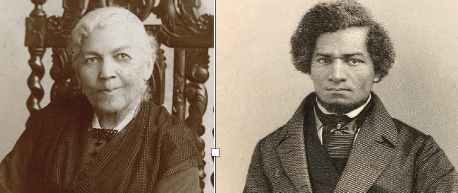
Slave narratives are a significant African American literary tradition and a distinct American genre. Written by former slaves, the narratives offer autobiographical accounts of how the authors lived through the horrors of slavery and managed to escape from the South to the North. Highly popular in the late 18th and early 19th century, the texts introduced African American voices to the public debate on slavery and played an important role in popularizing the abolitionist cause. They documented and criticized the inhumanity of slavery as well as the pervasiveness of racism in the North. The genre also established aesthetic strategies and themes that continue to influence contemporary African American writers.
In this course, we will read two classic slave narratives of the Antebellum period– the Narrative of the Life of Frederick Douglass, an American Slave, Written by Himself (1845) and Harriet Jacob’s Incidents in the Life of a Slave Girl, Written by Herself (1861). As we study these texts, we will pay attention to the gendered differences in the authors’ experiences and representational choices. In the second half of the semester, we will trace the legacy of slavery in contemporary American culture. We will examine how the movie 12 Years a Slave (dir. Steve McQueen, 2013), based on Solomon Northup’s narrative Twelve Years a Slave (1853), and the documentary 13th (dir. Ava DuVernay, 2016) revisit the history of slavery to re-envision the future of American race politics.
- Trainer/in: Paula Höhn
- Trainer/in: Heike Schäfer